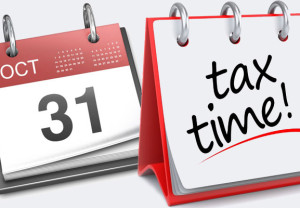Business Plan Perth
Set a course for the new financial year!
Last month we focused our blogs on setting goals and targets, however if you want to achieve your goals you will have to plan what activity you are going to do in order to make a change. After all, if you keep doing what you’ve always done you get what you’ve always got. So if growth, profit improvement and cost reduction are on your agenda, it’s essential you put in place a robust plan as to what you are going to do and when, to enable you to achieve your goals.
Every business needs a plan. Your business plan will keep you focused, provide direction for employees and can be used to help convince investors to lend you money.
Why do you need a business plan?
You may be wondering why you need a plan in the first place. After all, you have a clear idea in your mind about what you want to achieve. You know the market, you have the necessary skills, so why do you need a plan?
There are many good reasons. Here are just a few of them:
- To clarify your ideas
Writing something down gives it structure and substance. Your ideas will be clearer on paper than in your head. - To discover and solve problems
The business idea you have in mind may have some holes – you might not have covered everything. This will become much more apparent when your words are on the page. - To get feedback from others
A properly written business plan can be shared with trusted people to get their advice. - As a formal document
Banks, investors, accountants and lawyers will want proof that you’re serious about your business. A written plan will provide that proof. - To guide you as your business grows
A good business plan will keep you on track and focused, even as day-to-day work becomes a distraction.
Identify your strategy
Your business plan will also include your business strategy and will outline the steps you plan to follow to achieve the goals and objectives you have identified. This, in turn, will direct the day-to-day operations of your business. Each of your business goals will need a plan of action that needs to be followed to achieve the objective.
As a rule of thumb, your strategy will outline the most practical and cost-effective way to achieve each objective. It will detail any extra equipment or personnel that might be required to achieve this.
For example, you might need an extra staff member and an additional computer to increase output by 10% within the next six months, or you might consider enrolling your sales staff in a course to achieve the objective of increasing sales to existing customers next year.
Forecast the financial implications
The financial implications of your goals and strategies will be reflected in the financial forecasts in your business plan. Your goals will identify the areas of improvement, like an increase in sales or a reduction in costs, and your strategy will identify any additional expenditure needed to achieve these goals.
Most business plans will include a 12 month cash flow forecast, a profit and loss forecast, and a two or three year projection.
Your cash flow forecasts will identify whether you have sufficient financial resources to implement your plans immediately, or whether you will need to explore other financing options. Monitoring your actual spend against your projections is a way to ensure that new project costs do not escalate much beyond planned expenditure.
Review your business plan
Your business plan is a living document that grows and changes over the lifespan of your business. Its objective is to identify your key goals and how to achieve them, while taking market and technological trends into account.
The effectiveness of your business plan as a management tool depends on you referring back to it as a reminder of your plans and objectives, and updating your plans to keep them relevant.
Reviewing your progress against your business plan, on an annual basis, is a good way to measure actual performance, and will form the basis for revising and updating your plans.
Because the nature of your business and the market you operate in will change over time, it is a good idea to review and update your business plan once a year. The most efficient way to achieve this is to set aside a few days at the same time every year.
If you’ve never written a business plan before, it can be a daunting prospect. You can download our free eBook – foolproof guide to the perfect business plan.
Download your FREE eBook NOW







Comments are now closed for this article.